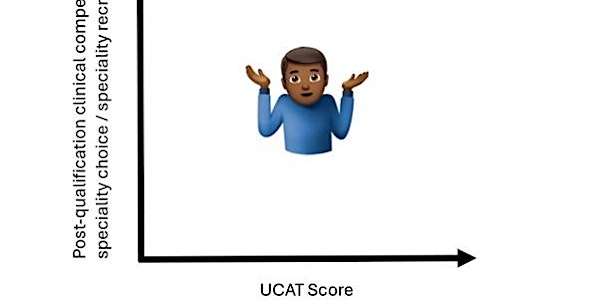



APEx April Seminar - Dr Taha Khan & Dr Deepthi Lavu
An opportunity for our APEx Academic Clinical Fellows to showcase their work
Date and time
Location
St Luke's Campus, Exeter
University of Exeter Heavitree Road Exeter EX1 2LU United KingdomAbout this event
Wednesday 24th April 2024
Lunch (12:00-12:30) Seminar & Questions (12:30-13:30)
This event will be held in JS07, Smeall building, St Luke's Campus, with hybrid virtual access via MS Teams.
Online joining instructions will be sent with the confirmation of registration email (Scroll to the bottom of your confirmation email to see the link beneath 'Additional Information')
Dr Deepthi Lavu
Talk Title
Gender inequalities across ethnic groups in primary care cancer referrals
Bio
Deepthi Lavu joined the University of Exeter in 2021 as an Academic Clinical Fellow (ACF) in General Practice (GP). She is also a GP registrar working at a practice in Exeter. Her current work explores the area of gender and ethnic inequalities in primary care cancer diagnosis.
Abstract
Background:
Early cancer diagnosis is associated with improved mortality and morbidity; however, studies indicate that women and individuals from ethnic minorities experience longer times to diagnosis and worse prognosis compared to their counterparts for various cancers. In countries with a gatekeeper healthcare system, such as UK, most suspected cancer referrals are initiated in primary care.
Aim:
To understand the extent of evidence available on the relationship between primary care cancer referral pathways and cancer outcomes in relation to gender across different ethnic groups. This will identify research gaps and enable development of strategies to ease potential inequalities in cancer diagnosis.
Design and setting: A scoping review based on the Joanna Briggs Institute methodology. PRISMA-ScR will be used.
Methods:
Electronic databases and private collections of the team members will be searched for studies. Two independent reviewers will carry out the study selection and data extraction. Based on participants, concept and context framework, this review will consider studies after year 2000 that explored the relationship between gender, across various ethnic groups, and cancer outcomes following primary care cancer referral in countries with gatekeeper healthcare systems (UK, New Zealand, Sweden, Australia, Canada, Denmark, Ireland and Norway). Results will be presented as a narrative analysis.
Conclusion:
The results are expected to provide an overview of the discrepancies in primary care cancer referrals based on gender across ethnic groups, which will be crucial to define an appropriate range of strategies to ease any inequalities in primary healthcare cancer diagnosis.
_______________________________________________________________________________________
Dr Taha Khan
Talk Title
Modelling the relationship between UCAT scores and post-qualification clinical competency and specialty choice: a doctoral programme of psychometric epidemiology
Bio
I am an NIHR ACF GPST3. Originally from London, I graduated with distinction from Brighton and Sussex Medical School in 2019. Here I was inspired by: research, general practice, and medical education. Following graduation, I embarked on the Academic Foundation Programme in Scotland, where I was mentored by Val Wass.
Now, I am based in Exeter for my ACF in medical education, under the supervision of Karen Mattick. Currently, I'm working on my PhD in medical education, which is supervised by Paul Tiffin (Hull York Medical School) and Karen.
Abstract
We have secured funding from UCAT (University Clinical Aptitude Test), which describes itself as a “computer-based admissions test” used by universities in the United Kingdom, Singapore, New Zealand and Australia to “help select applicants for their medical and dental degrees” by “seeking to identify the characteristics in applicants which will make them good clinicians ... to improve the quality of those who enter the professions with the ultimate aim of improving patient care”.
We know the UCAT predicts medical students' performance in their university assessments. However, we don't know if it predicts 'good clinicians' (aka doctors’ post-qualification clinical competency) or speciality choice, or whether it should have a role in specialty recruitment.
Hence, the PhD will involve:
A systematic review investigating if medical schools’ cognitively based selection assessment scores (e.g. the UCAT) predict doctors’ post-qualification clinical competency.
Determining the incremental predictive validity of the UCAT scores (including SJT) for performance in postgraduate clinical examinations in five exemplar specialities: general practice, medicine, surgery, psychiatry and pathology. Analyses will include univariable and multivariable regression analyses, as well as path analysis models that estimate the causal relationships between the variables.
Determining the relationship between UCAT scores and speciality choice.
Developing pareto-optimal models highlighting the optimum trade-offs between UCAT performance, secondary school achievement and pass rates at clinical examinations for at least one of the five example specialities.
Developing a ‘proof of concept‘ model for recruitment to general practice training schemes under various conditions, including according to the UCAT profiles of medical graduates, using numerical simulation.